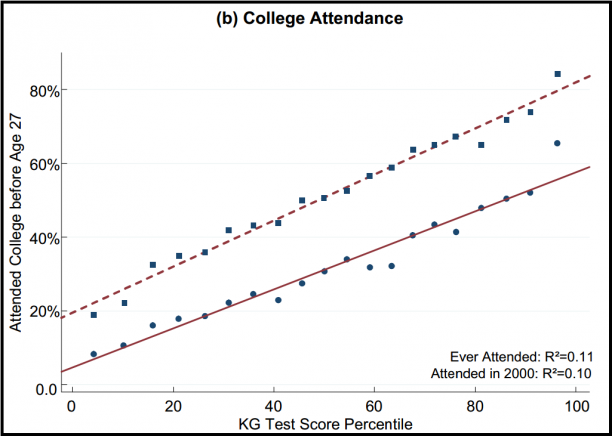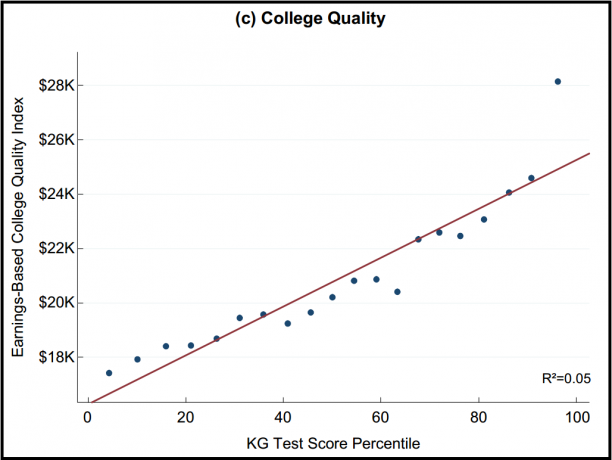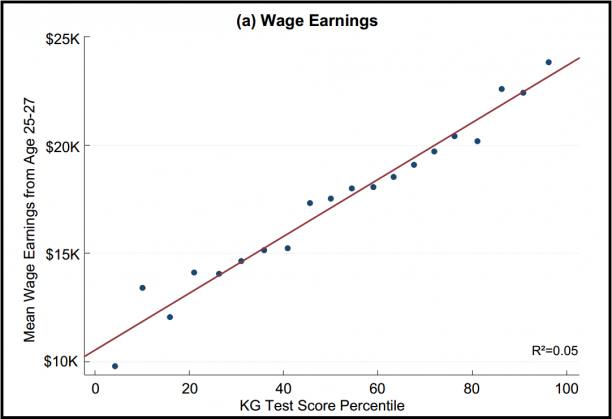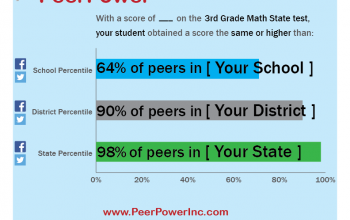Standardized Test Percentile Scores: 9 Reasons Why They Matter
At PeerPower, we are on a mission to increase high school and college graduation rates by empowering students, parents, teachers, and administrators with better information that we believe will lead to better educated students and (quite literally) a better world.
To date, we have set out on that mission by calculating and being the exclusive provider of percentile scores from California CAASPP, Maryland PARCC, Massachusetts MCAS, and Virginia SOL standardized test scores. (Want us to add your state's percentiles? Contact us!)
Does that mean we think state standardized tests like Virginia's Standards of Learning or the Common Core tests - called PARCC and Smarter Balanced Assessment - are a perfect measurement of what students learn?
No.
Does that mean we think state standardized tests are a perfect measurement of teachers' performance?
No.
Does that mean we think Charter Schools and/or School Privatization are the only solution?
No.
Do we believe kids are spending too much time taking standardized tests?
It varies from state to state, but too much should not be replaced with nothing. (Virginia recently cut back on tests, but did not eliminate all of them, for example.)
But do we believe in the power of using data to inform (not dictate) decisions when it comes to our children's education?
Yes.
And do we think you should consider recent peer reviewed research by researchers at Harvard and Stanford Universities that concludes students in the 85th percentile and higher are more likely to experience several positive life outcomes than the average student (50th percentile)?
Absolutely.
Of course your child is more than a score. You and I are more than our blood pressure, too, but that doesn't mean it's not useful.
Here are 9 reasons why Standardized Test Percentile Scores matter:
1. Students in the 85th percentile and higher (often referred to in the research as 1 standard deviation above the mean) are more likely to go to college than average students. The research citations are below. These findings have been found for scores as early as kindergarten all the way to high school. Here is a graph showing the higher the percentile score in kindergarten (KG), the more likely that student attended college:

2. Students in the 85th percentile and higher are more likely to go to a higher quality college. Here is a graph from that study showing the higher the percentile score, the higher quality college the student attended. (The study defined the quality of the college as the average income of graduates of that college at age 28 - higher incomes = higher quality college.)

3. Students in the 85th percentile and higher can be expected to earn 13 percent to 20 percent more in lifetime earnings than the average student. Another graph from the kindergarten study:

4. Students in the 85th percentile and higher are less likely to have a child as a teenager.
5. Students in the 85th percentile and higher are more likely to live in better quality neighborhoods as adults.
6. Students in the 85th percentile and higher are more likely to participate in 401(k) retirement savings plans as adults.
7. These results still held after controlling for demographics like the student's race and the parents' income.
8. The effects of being in the 85th percentile were present for both boys and girls, but were stronger for girls.
9. The effects for being in the 85th percentile exist for both English and Math, but the effects for English lasted longer.
My 13 year old son provided the best summary of this research. I asked him what he would think if I told him that being in the 85th percentile on his Virginia Standards of Learning test meant he was more likely to go to a higher quality college, live in a better neighborhood and earn a higher salary. He said "My reaction would be 'Here's the money, now let me see my future!'" I didn't charge him. : - )
Ready to get started? Go to the Find Percentile Reports page.
Want to see an example of what you'll get? Take a look at a Sample Report!
Have Questions you want Answered? Head on over to the Q & A page.
Want to know even more? - Contact us and we'll be happy to answer any other questions you have.
Sources:
85th percentile Study: The economic value of higher teacher quality
Kindergarten Study: How Does Your Kindergarten Classroom Affect Your Earnings?
Better college, etc. Study: Measuring the Impacts of Teachers II: Teacher Value-Added and Student Outcomes in Adulthood
Discussion of studies in The Economist and New York Times:
New York Times: Big Study Links Good Teachers to Lasting Gain
The Economist: Knowledge for earnings’ sake

